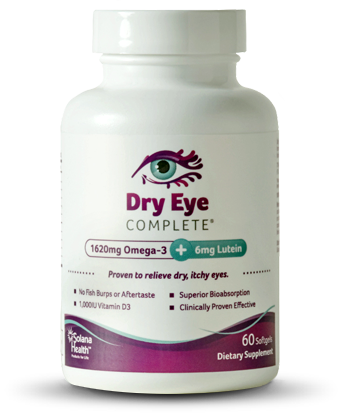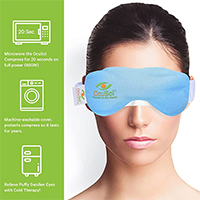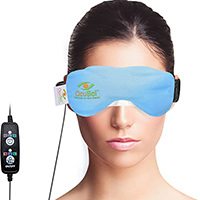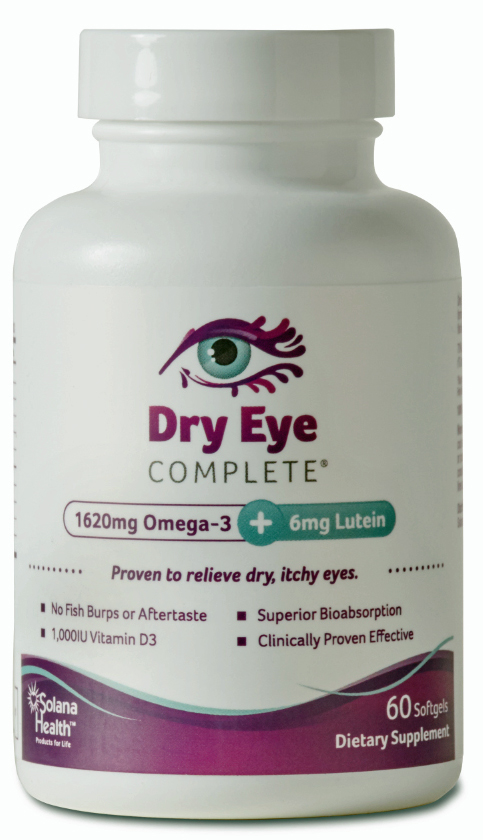A lot of people experience eyes that feel irritated and dry. If this sounds like you, and you also noticed that a few blinks help to improve your vision, albeit temporarily, you may suffer from Dry Eye Syndrome, or DES. Once upon a time, this was something that only affected post-menopausal women. Today, however, it has reached epidemic proportions and it is believed that this is mainly due to the fact that we use computer screens so much.
Studies on Dry Eye Syndrome and Computers
A new study published on the British Journal of Ophthalmology determined that a fifth of all adult women have suffered from the symptoms of DES in the past three months. Furthermore, 10% of them were currently receiving DES treatment. The study also found, notably, that the symptoms of DES caused these women significant difficulties in working online, driving, and watching television.
According to cornea specialists, dry eyes have reached epidemic levels. This has made it a point of significant research for the American Academy of Ophthalmology. They have found that people spend so much time transfixed by commercials, television, telephones, tablets, and computers, that they simply forget to blink.
Each time a person blinks, the Meibomian glands squirt the lipid element of the tear film into the eye. On average, people blink every four seconds, and each blink leads to the release of this oily substance. However, when people forget to blink, their tear film becomes both insufficient and of poor quality. Additionally, we spend a considerable amount of time inside very dry environments, which makes the situation worse. When there isn’t enough lipid within the tear film, the tears cannot quite cover the eyeball, and they evaporate too quickly. This inevitably leads to irritation.
Once the irritation becomes significant, it can also cause vision to blur. Interestingly, the American Academy of Ophthalmologists has also seen an increase in people seeking medical assistance for things such as brain tumors and sudden sight loss. This is a panic reaction, as, nine times out of ten, these people simply need to blink more.
The recent British study looked at some 3,824 British women. The study demonstrated that there is a clear link between DES and:
- Strokes
- Migraines
- Cataract surgery
- Allergies
- Eczema
- Age
They also established that women with DES often experienced chronic pain and discomfort, which in turn could lead to depression due to a reduction in quality of life.
How to Avoid Dry Eye Syndrome
As a result of the study, significant attention has now been paid to educating the public about how to look after their eyes, particularly since so many of us no longer have the ability to look away from the screen often enough. The following guidelines have been established:
- Make a point to blink. Researchers have suggested leaving reminders, such as post it notes, in key places like around a computer or television screen, and on the dashboard of a vehicle. Seeing these reminders will help people to blink more often, in turn improving their symptoms.
- Use artificial tears. There are different types of artificial tears, each of which affects a different element of the tear film (water, lipid, nutrients). Most of the time, tears that focus on the lipid elements, created by the Meibomian glands, are the most important. While most people will have to try a number of different brands before finding one that works for them, they are discouraged from using anything with preservatives, as this can lead to irritation after prolonged use.
- Go to an Ophthalmologist. A visit to an Ophthalmologist will help to determine whether the condition is made worse due to drugs like diuretics or antihistamines.
- Take supplements. Taking supplements such as omega-6 fatty acids and fish oil may also benefit, although further research is needed.
Can DES Cause Blindness?
Your mother probably told you as a child that you would go blind from sitting too close to the TV. A computer screen is likely to be a whole lot closer than your television ever was, however. It is no surprise, therefore, that a lot of people now worry that if they develop DES, they will also go blind. Recent studies have shown that your mother may have had a point. Not only is there now research to suggest excessive computer usage can cause blindness, there is also evidence to suggest it can increase your risk of developing glaucoma.
Our ocular system is incredibly adaptive and hugely complex. It is able to change focus, can adapt to lighting conditions, can recognize faces and objects, and more. Every second, the eyes classify, identify, react to, and analyze some 12 to 15 million images. Yet, it seems that the eyes have significant difficulties dealing with computer screens.
When staring at computer screens, our eyes become strained due to a number of different reasons, including:
- Having a constant working distance, which leads to continuous flexing movements of the eye muscles. Eventually, they go into ‘ciliary muscle lock’, which means that you lose your distance vision, albeit only for a short period of time. You may also struggle to focus, have blurry vision, and develop headaches.
- Blinking less. When we go to bed at night and our eyes start to feel tired, eventually closing completely, our blinking rate is reduced to around four times per minute. This is much less than the average once every four seconds that are needed during our waking time. When looking at a computer screen, however, we automatically start to reduce our blinking to the same level as we would when we are ready to go to sleep: four times per minute. It is not clear why this happens, but it certainly explains why our eyes feel dry after looking at a screen for a certain time.
- The quality of light that your computer screen emits is likely to be of poor quality. Most of us wouldn’t think of staring straight into a lightbulb for several hours in a row, but that is exactly what we do when we stare at a computer. Furthermore, the light in your surrounding area, such as the overhead lighting in your office and the natural light that comes through the window, is often too bright and creates glare.
The Epidemic
The actual epidemic is not quite in dry eye syndrome (DES), but rather in computer vision syndrome (CVS).
CVS is really a blanket term for a collection of signs and symptoms, including:
- DES
- Back, neck, and head problems
CVS is now actually far more common than Carpal Tunnel Syndrome, which is the ergonomic issue most people have heard of. It is believed that between 150 million and 200 million people in this country now suffer from CVS. That equates to 90% of all computer users.
A number of serious developments show just how much of an epidemic this situation actually is:
- OSHA has placed CVS as the top ranking health-related office complaints.
- The National Eye Institute has reported that, since the personal computer became widespread, there has been a 66% rise in the prevalence of myopia.
Technically, therefore, computer use can make you go blind. Luckily, there are plenty of things that you can do to actually avoid this, including:
- Having an ergonomic workplace that focuses on both posture and vision.
- Avoiding glare by installing glare protectors.
- Installing software on the computer to encourage you to remember to blink and take breaks.
- Wearing Gunnar Optiks, which are lenses designed to reduce eyestrain as a result of computer usage.
According to the Vision Council of America, the most important thing is that people become aware of the danger they are placing their eyes in. Since the biggest problems are easily remedied through frequent blinking, having reminders in place is often all that is needed. It is vital that you look after your eyes, as you only have one pair, so take breaks, blink often, relax and rest, and give them some regular TLC as well.
Resources and References:
- Dry Eye Syndrome PPP – 2013 – Preferred Practice Pattern guidelines for dry eye. (American Journal of Ophthalmology)
- Sitting too Close to the Computer Screen Can Make You Go Blind – How computer screens can cause blindness. (Scientific American)
- Computer Use Linked to Eye Disease – Connection between computer use and eye problems. (BBC News)
- Computer and Internet Use in the United States: October 2009 – Statistics on computer and internet use in the U.S. (United States Census Bureau)
- Increased Prevalence of Myopia in the United States Between 1971-1972 and 1999-2004 – Statistics on myopia in the U.S. (JAMA Network)



















